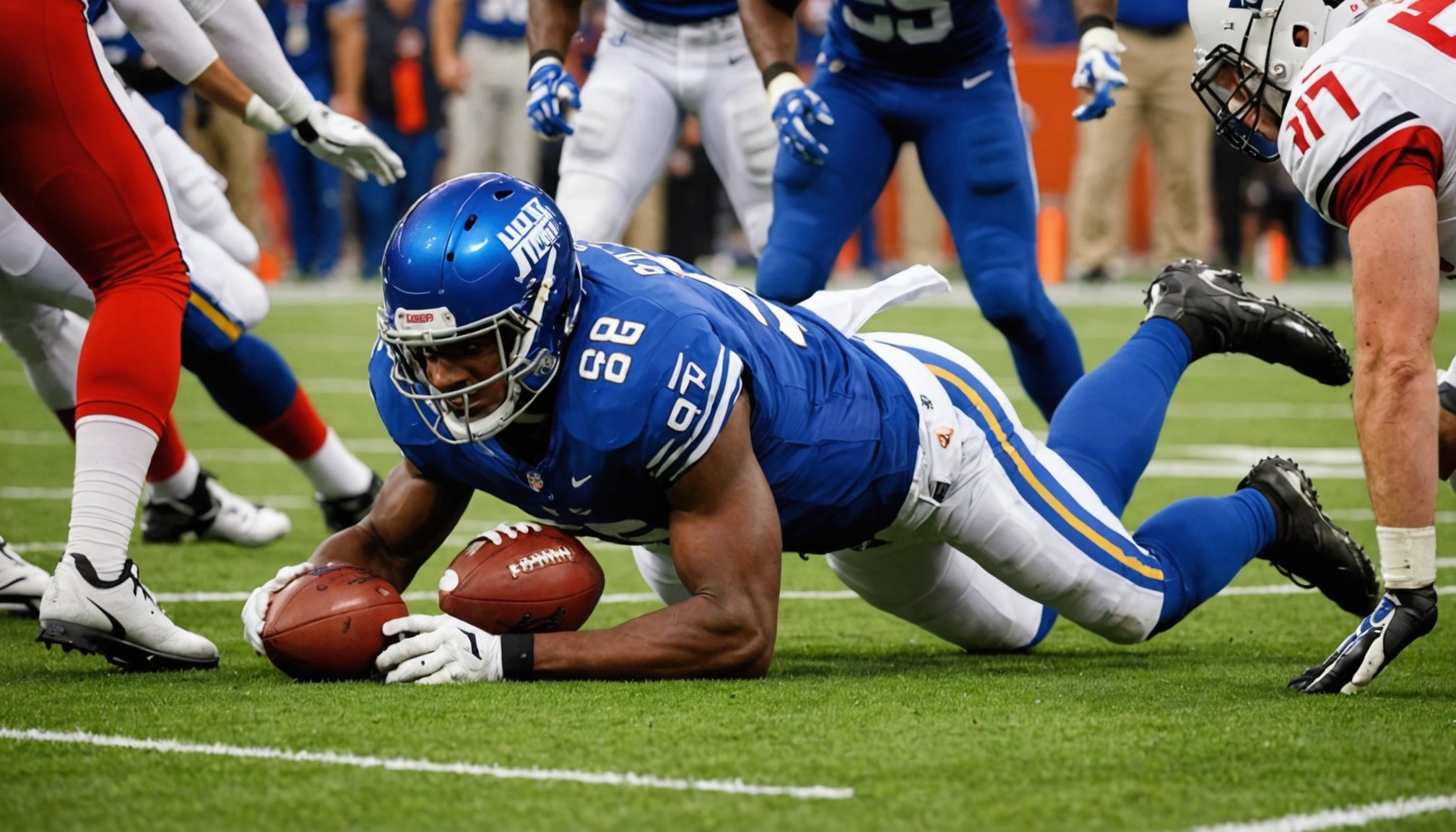Importance of Sleep for Athletes
Understanding the sleep impact on performance is crucial for athletes aiming to reach their peak potential. Adequate sleep enhances athletic abilities by improving coordination, reaction time, and overall cognitive function. Research consistently shows that athletes who prioritize restful sleep perform better due to the optimized brain and body function essential in high-intensity sports.
Sleep not only boosts performance but is integral to effective recovery strategies. During sleep, the body undergoes critical repair processes, such as muscle recovery, hormone regulation, and immune system strengthening. This recovery period ensures athletes can train harder and longer without succumbing to fatigue or injury.
Additional reading : Mastering heading accuracy: essential techniques for football players to elevate performance
A particularly revealing statistic involves injury rates in football players. Studies indicate that those who routinely sleep fewer than eight hours a night have a significantly higher risk of injury. This underscores the importance of sleep not just for performance but also for maintaining an active and healthy career.
The athletic sleep benefits are clear: sleep helps prevent burnout, decreases stress, and supports sustained training regimens. Coaches and trainers are increasingly emphasizing personalized sleep schedules as part of comprehensive training programs, cementing sleep’s role as a cornerstone of athletic health and performance.
In parallel : Unleash your inner pro: essential techniques to enhance free kick accuracy in football
Pre-Game Sleep Routines
Creating a well-defined pre-game strategy is essential for athletes seeking optimal performance. Establishing an optimal sleep schedule can be particularly beneficial. Generally, it is suggested that adults require 7 to 9 hours of sleep. However, athletes may benefit from ensuring they receive at least 8 to 10 hours of rest, particularly in the nights leading up to competition.
To develop performance-enhancing habits, athletes should implement an ideal evening routine. This involves activities that promote relaxation and set the stage for restful sleep. Reducing screen time, engaging in light stretching or meditation, and consuming a light snack can enhance the quality of sleep. Moreover, maintaining a consistent sleep environment by regulating room temperature and minimizing noise can further contribute to better rest.
The importance of consistency in pre-game sleep patterns cannot be understated. Regular sleep schedules help the body establish a rhythm that can optimize cognitive and physical performance. Athletes should aim to go to bed and wake up at the same time each day, including weekends, to reinforce these patterns.
Incorporating these strategies into an athlete’s pre-game routine can provide a significant advantage, ensuring that they remain rested and prepared for peak performance.
Optimizing the Sleep Environment
Creating a restful space is essential for nurturing high-quality sleep. Sleep environment adjustments can significantly enhance restfulness by focusing on key elements like light, noise, and temperature. Dimming lights before bed and using heavy curtains can help regulate natural light exposure. Noise control, through earplugs or white noise machines, promotes undisturbed sleep. Maintaining a cool room temperature, around 18°C (64°F), further supports optimal sleep conditions.
For athletes, these adjustments play a pivotal role. Sleep hygiene practices are particularly beneficial for enhancing sleep quality at home and during travel. Bringing personal items such as a favourite pillow or blanket mimics a familiar environment. Additionally, using sleep masks and earplugs during travel can aid in reducing unfamiliar disturbances.
Incorporating sleep hygiene practices into daily routines fosters improved rest. Establishing a regular sleep schedule reinforces bodily rhythms. Avoiding heavy meals and caffeine close to bedtime reduces sleep interruptions. Developing a pre-sleep routine, like reading or meditation, signals the body it’s time to wind down.
These actions, tailored to fit both home and travel scenarios, can enhance overall sleep quality, promote relaxation, and ensure athletes are well-rested for peak performance. Such targeted sleep environment adjustments can make a significant difference in achieving restful, restorative sleep.
Napping Strategies for Enhanced Performance
Exploring effective nap techniques can be transformative for athletes aiming to maximize their potential. Understanding the balance between power napping and timing is crucial for enhancing performance. So, what are the most effective guidelines for napping before games?
To benefit from in-game napping benefits, keep naps between 10 to 20 minutes. This range is optimal for a quick boost in alertness without entering deeper sleep cycles, which can cause grogginess. Timing your nap around one’s natural circadian rhythms, usually between 1-3 PM, is ideal for beating afternoon sluggishness. To achieve the best results, consistency in nap timing daily is recommended.
The science supporting power naps reveals fascinating outcomes. Quick naps can increase alertness, improve mood, and enhance mental performance, essentially providing a cognitive reset. The reason lies in how brief naps allow the brain to incorporate rest without fully entering the deeper stages of sleep.
Numerous successful athletes have integrated nap techniques into their routines. For instance, Lebron James and Cristiano Ronaldo take power naps as part of their training regimen to boost focus and recovery. Emulating these athletes’ sleep strategies could lead to enhanced game performance and increased cognitive function. Thus, incorporating these tried-and-tested strategies might just offer the edge needed for your next game.
Understanding Circadian Rhythms
Circadian rhythms are internal biological clocks governing various physiological processes, including the sleep-wake cycle. They regulate our sleep patterns by controlling hormone production, body temperature, and metabolism, helping us feel alert or drowsy at specific times. This natural rhythm plays a crucial role in determining the timing of peak performance throughout the day.
For athletes and those with demanding schedules, aligning training and rest with circadian rhythms can optimise energy levels and performance. Strategies to achieve synergy with these rhythms include maintaining a consistent sleep schedule, exposing oneself to natural light during the day, and minimizing light exposure before bedtime. Integrating these practices can enhance the quality of sleep while capitalising on naturally occurring periods of high alertness.
Travel and time zone changes can disrupt circadian rhythms, leading to diminished performance and sleep quality. Strategies to mitigate these effects include gradually adjusting sleep schedules prior to travel and using light exposure to reset the body clock upon arrival. These adjustments can help maintain optimal performance timing despite external disruptions.
Overall, understanding and aligning with one’s circadian rhythms is vital for maximising performance and well-being. Implementing strategies to harmonise with these natural cycles ensures individuals leverage peak performance timing effectively.
Scientific Insights on Sleep and Performance
Understanding the effects of sleep deprivation is crucial in comprehending its impact on athletic outcomes. Numerous sleep research studies have explored the intricate connection between rest and physical performance. One pivotal study highlighted that athletes who consistently get adequate sleep show enhanced cognitive functions and faster recovery times post-training.
Incorporating findings from both sports psychologists and sleep experts is essential. Sports psychologists often emphasize the mental resilience that adequate sleep fosters, reducing stress and improving focus. Sleep experts further attest that sleep plays a fundamental role in muscle repair, hormonal balance, and energy rejuvenation—all crucial for athletic prowess.
Case studies of elite athletes underscore the importance of sleep. These athletes, who prioritize healthy sleep patterns, often outperform their peers in endurance and competitive edge. For instance, some regulations among top Olympic teams include designated sleep schedules to optimize training results.
Research underlines that sleep deprivation not only hampers reaction times and accuracy but also increases susceptibility to injuries. Consequently, a strategic approach to sleep, firmly based on scientific insights, is increasingly adopted in modern sports training regimes. This evolving understanding calls attention to sleep as a cornerstone of athletic success.
Expert Recommendations and Resources
Improving sleep quality is a crucial aspect for athletes aiming to enhance performance. Sleep experts tips highlight the importance of establishing a consistent bedtime routine. This includes winding down activities like reading or meditative practices, which can help align the body’s natural sleep-wake cycle. Importantly, the environment should be cool, quiet, and dark to facilitate restful sleep.
Incorporating athlete sleep strategies can significantly boost recovery and readiness. Experts recommend targeted naps of about 20-30 minutes that can improve alertness and muscle recovery without affecting nighttime sleep patterns. Additionally, athletes should consider adjusting their nutritional intake, focusing on foods rich in magnesium and tryptophan which promote sleep.
Access to reliable sleep optimization resources can refine these strategies further. Wearable technology like sleep trackers and smartwatches offer valuable insights by measuring sleep quantity and quality. These devices monitor patterns and disturbances, enabling athletes to refine their sleep hygiene.
For those looking to delve deeper into the science of sleep and its impact on athletic performance, numerous articles and books by leading sleep researchers are available. By integrating expert strategies and leveraging advanced tracking resources, athletes can optimise their sleep, paving the way for enhanced performance.











